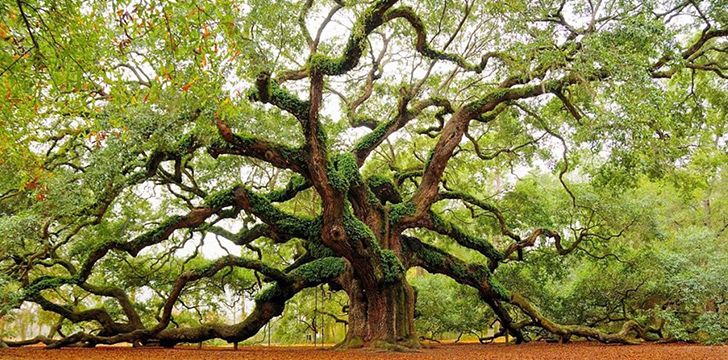Oaks are one of the oldest and most widely spread trees on this planet. They existed way before humans were here.
They feed various living creatures with their leaves and acorns.
Oaks played a crucial role in human history as well. Early humans built their homes, created tools, and constructed strong ships from oak wood.
These trees are still one of the crucial sources of raw material in our modern time.
Elegant furniture, flooring materials, cosmetic creams, and wine barrels are among many products that are being produced using oak trees.
Here are 12 interesting facts about oak trees!
A mature oak tree can reach around 148 feet (45 meters).

Compared to coast redwoods which usually grow to a height of 379 feet (116 meters), oak trees stay in the category of middle-height trees.
However, contrary to redwood, their branches can spread wide in length. Therefore, they are also considered shrubs.
Oak trees appeared on our planet about 65 million years ago.
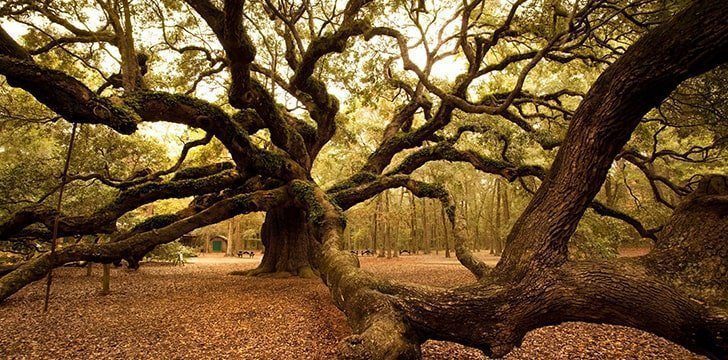
Unlike many other trees, oak trees have not gone extinct during such a long stretch of time.
This is mainly because their seeds are cased in hard shells.
Plus, acorns and leaves are coated with tannic acid, which prevents fungi and insects from harming them.
Oak trees live up to 1,000 years.
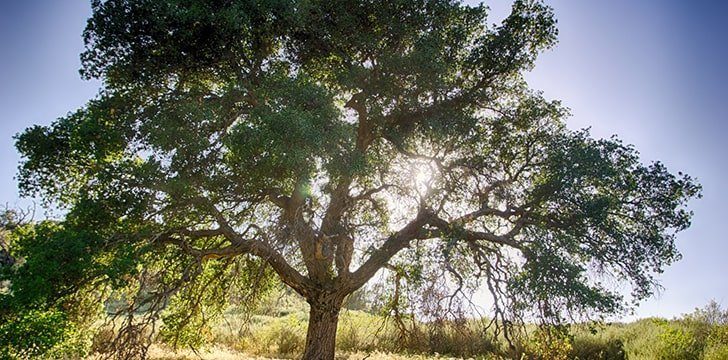
They are considered old when the trees reach the age of 700 years.
Until that age, oak trees continue to grow and produce acorns to multiply their offspring.
When the trees surpass the 1,000-year mark, their growth slows downs, and some parts start to die.
An oak tree produces about 10 million acorns during its lifetime.
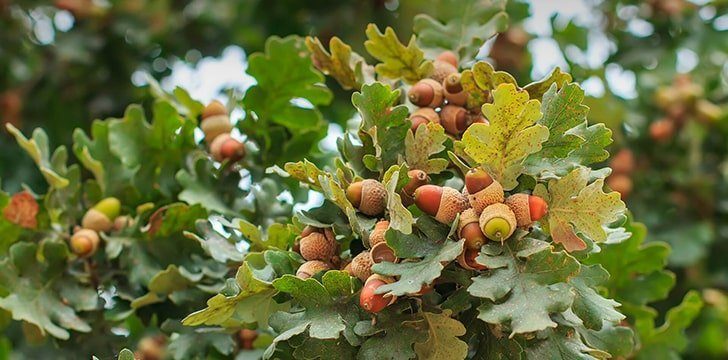
Each acorn contains only one seed enclosed in a tough shell.
Apart from being a seed, they are also the main food source for many birds, such as woodpeckers, ducks, and pigeons.
Squirrels, mice, rats, and bigger mammals, such as deer, pigs, and bears, also consume acorns.
However, if you are a dog or a horse owner, you should note that acorns are toxic for your animals.
The tannic and gallic acids contained in the acorn can poison both dogs and horses, leading to severe gastrointestinal and kidney diseases.
There are over 600 species of oak trees.
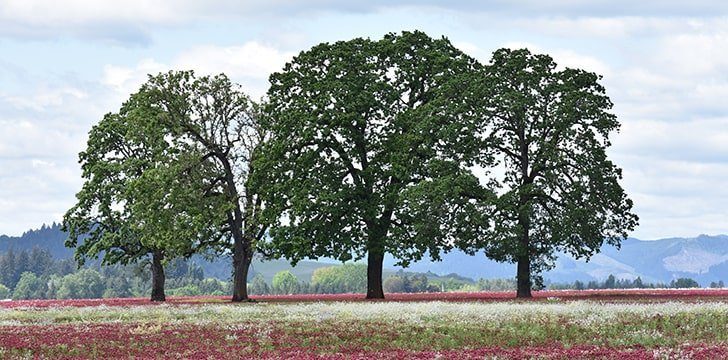
The highest population of oak trees can be met in North America, especially in Mexico, where about 160 species grow, and 109 of those are endemic.
The United States also has over 90 species. If we travel overseas to China, we can find there over 100 species as well.
My favorite among them is the northern red oak (Quercus rubra); its leaves have a unique red color. Red oak is also the state tree of New Jersey.
The largest living oak tree is located in Mandeville, Louisiana.
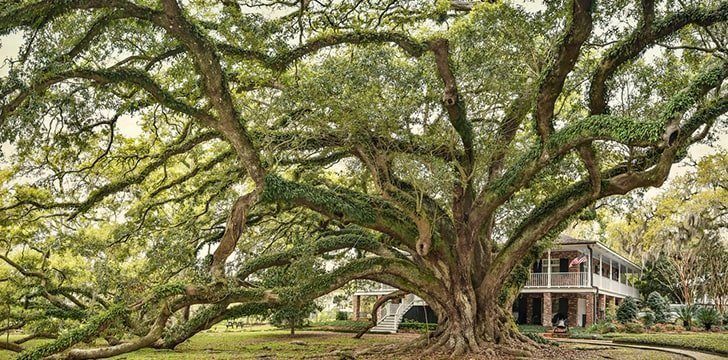
Apart from being the largest, it is also one of the oldest known living oak trees, with an estimated age of 1,500 years.
The owner of the tree, Carole Hendra Doby, named the live oak “Seven Sisters Oak” because she was one of the seven sisters.
Moreover, the oak has seven sets of branches that grew out of its central trunk.
Wine is aged in oak barrels.
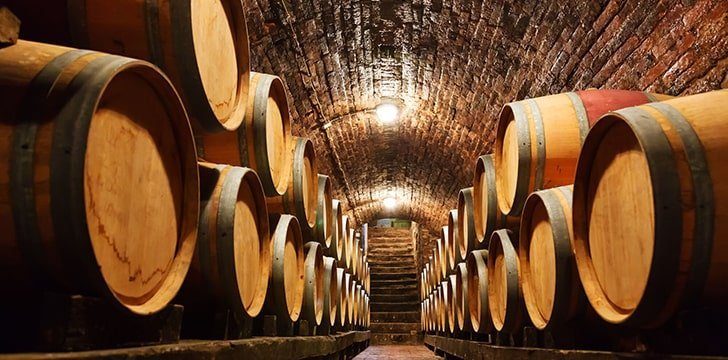
You may have already seen one of those big old wooden wine barrels. Those are made of hand-selected oaks, usually American and French oaks.
The aging of wine in oak barrels was the historic practice of famous winemakers.
It is still practiced in our days.
Before the wine is bottled, it is kept in the barrels for a long time.
The oak adds a unique taste, and the aromas of vanilla, coconut, and smoke to the wine.
If you like truffles, then thank the oaks.
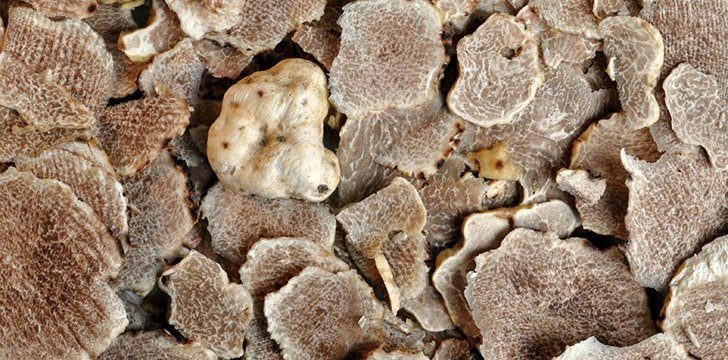
Truffles have a close relationship with the roots of oak trees.
Did you know that it is almost impossible to grow truffles on farms? Truffles grow naturally.
Their development process is tied up with mystery and uncertainty.
Therefore, truffle prices are a lot higher than any other fungi.
Truffle farmers do not plant truffles. Instead, they plant oak trees, hoping to create favorable conditions that might invite the growth of truffles.
Oaktree population is decreasing.
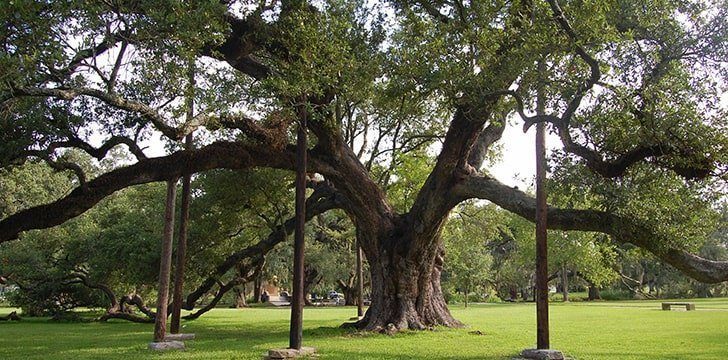
That is indeed a piece of unfortunate news.
Farmers in Mexico and Central America are clearing out the oak trees in order to open up grazing land for their cattle or for their coffee plantations.
And they use chopped-down oaks as construction material, and the rest is processed to manufacture the coal.
Currently, about 78 species of oaks are considered to be in danger of extinction.
Only 1 in 10,000 acorns grow up to be an oak tree.
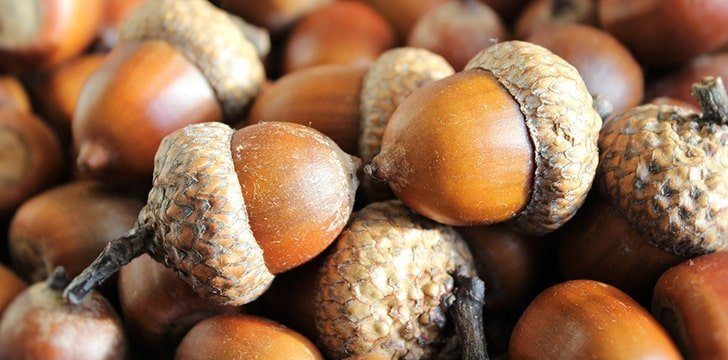
Usually, oak trees start to produce acorns when they reach 50 years of age.
In their maturity, they can produce over 10,000 acorns, most of which are digested by animals and fertilized into the ground.
According to estimates, only one in a thousand survives to be an oak tree.
In other words, a full-grown oak tree gives birth to one oak a year.
Vikings used oaks to construct their ships and boats.

Oakwoods are dense and strong, which made them favorable in many construction projects during ancient times.
Vikings handcrafted their ships using local oaks (they used pine trees as well).
British Royal Navy ships were also constructed from oaks until the mid-19th Century.
Nowadays, oaks are still the choice of carpenters when they create furniture and veneers.
Some cultures worshiped oak trees.
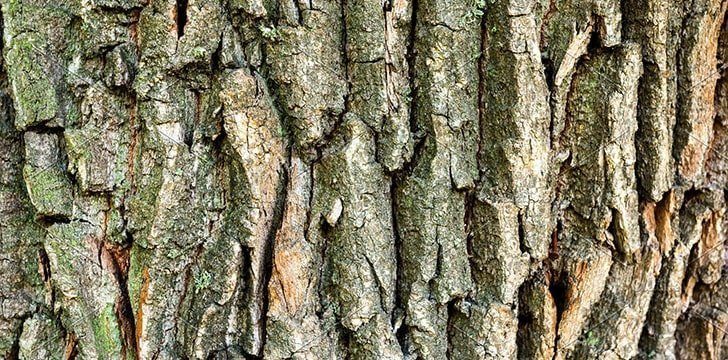
Throughout the centuries, mainly in parts of Europe, people worshiped oak trees, associating them with the mythological gods, namely Zeus and Jupiter.
Druids also worshiped oak trees.
They got married under the spreading branches of oaks and carried acorns, believing those practices would bring them happiness and good health.
Oak trees may be one of the most common types of trees in the world, but they are still fascinating and wonderful to look at.
Oak trees’ canopy provides shade for plants and soil, a source of food to certain animals, and of course, oxygen to living organisms.
Next time you’re out on a park walk, be sure to look out for oak trees with your newfound appreciation for them.

